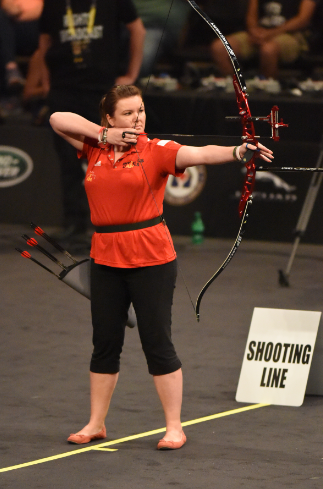
1. What was your role within the Canadian Armed Forces?
I served in the Canadian Army as a Medic for two years and then as an Intelligence Operator for eight years.
2. Why is important that women serve side by side with men in combat/in the military?
Women have served in combat in various roles throughout history. My grandmother was born in the United States and renounced her American citizenship when WWII broke out, moving to Canada to join the Canadian Army and the war effort. Even in countries where women are not allowed to take on combat roles, women serve on the frontline as intelligence operators, signals, medics, engineers and various other roles. Canada can be proud of its forces’ status of employing women in any and all trades, including combat roles.
Wars are not a phenomenon experienced by only males and the outcome of wars do not solely impact the men of our societies. As such it is important for women to be involved. Additionally, combat environments are complex and do not occur in a vacuum; often they happen on city streets and involve more than simply the adversary.
There are things a female soldier can do that male soldiers would have a more difficult time doing. During my deployment in Bosnia I was often used as an interviewer for women who had suffered gendered violence, as the victims would likely be more comfortable speaking to a female than a male about their experiences. Other examples include speaking with women in cultures where men and women are typically segregated. Having a force that only utilises men would jeopardies the effectiveness of our operations.
3. How did you balance your duty to your country with your duty as a mother/daughter/wife/girlfriend?
My career in the Canadian Forces was fuelled by a desire to help make a difference in the lives of people affected by man-made and natural disasters and as such I did not focus on the impact it would have on my family. When I deployed overseas I knew it was difficult for my parents, but I also know that they were proud of my contribution to helping people made vulnerable by conflict. As a single mother it is more difficult to balance work and family, just like any career, but my children are proud that I served.
4. What are the official limitations of female service members, if any? What are the biggest misconceptions of women in the military?
I am proud to say that the Canadian Forces has no limitations for women. Women, like men, can serve in any trade or role as long as they meet the minimum standard to perform that job. In my Basic Training course back in the 90’s the course top candidate was a woman. She was no taller than 5 feet and could fireman carry guys on the course who were over 6 feet tall. A person’s ability cannot be measured by whether they are male or female, and I am glad the Canadian Forces recognises this.
5. How, if at all, has the military changed since you first joined?
The importance of mental health is more recognised now, and this extends beyond the armed forces to society at large. The military has historically been a force for technical advancements that benefit the rest of society – such as medical innovations – as well as positive change of social norms in society. The recent increase of recognition of the importance of mental health was spearheaded by the increase in mental health issues within our Forces.
In addition to more open dialogue about mental health, the Canadian Forces is making efforts to crack down on sexual misconducts to make the workplace safer for all members. These are all efforts in the right direction.
6. How has your female identity developed since leaving the military?
When I joined the military we were told that we were not men and women – we were all soldiers. People identify themselves at different areas of the gendered spectrum – you can have males who identify more with gendered feminine roles and females who identify more with gendered masculine roles. Although the soldier identity is more masculine than feminine, you do not lose your female identity when you join the military – you just take on the identity of soldier or sailor or whatever component you belong to. My identity has evolved since leaving the military but I do not think I lost the components of being a soldier. I think that stays with you, and it is a positive thing.
7. What did it mean for you to compete in the Invictus Games?
I was very proud and humbled to represent Canada at the 2016 Invictus Games. What I loved about my sport, archery, was that it was the only sport where women and men competed for the same medal – there weren’t separate categories. I appreciated that.
The Invictus Games were truly inspirational with regards to the support from everyone for everyone. Although people were competing against each other, they supported one another in a way you do not see in any other competitive sporting event or even just in society. Military personnel sometimes see the worst of humanity – they see the extreme forms of hatred manifested. The Invictus Games provides the opportunity to see the goodness of humans.


